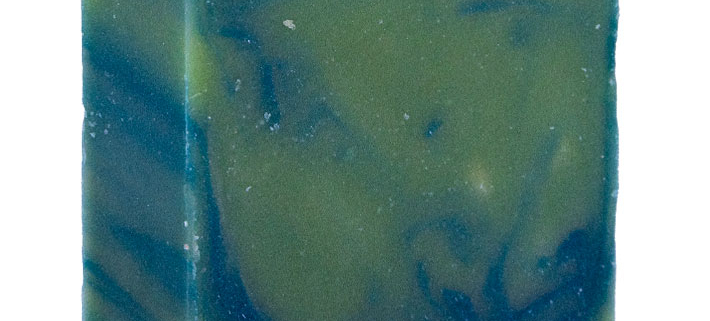Sensitive skin requires extra care and attention, especially when it comes to daily cleansing routines. The soap you choose can make the difference between skin that feels balanced and hydrated versus irritated and inflamed. With so many products available on the market, finding the right option can feel overwhelming. Fortunately, by focusing on handmade soaps and natural bath products, you can make an informed decision that supports both your skin and overall well-being. This guide will help you understand what to look for and how to make choices that promote comfort, health, and sustainability.
Understanding Sensitive Skin and Why Soap Matters
Sensitive skin is not just a marketing term. It is a condition that can affect people of all ages and is often linked to irritation, dryness, redness, or allergic reactions when exposed to certain ingredients. Conventional soaps often contain harsh detergents, artificial fragrances, and preservatives that strip away the skin’s natural oils. This stripping effect can leave the skin feeling tight, itchy, and inflamed.
When you have sensitive skin, your barrier function is more delicate. The outer layer of your skin works like a shield, keeping moisture in and irritants out. Soaps that are too alkaline or filled with synthetic chemicals can weaken this barrier. Over time, this may contribute to chronic sensitivity, eczema flare-ups, or even acne.
This is where handmade soaps and natural bath products provide a clear advantage. By using oils, botanicals, and gentle natural additives, these products cleanse without disrupting your skin’s protective balance. Choosing the right soap becomes less about fragrance or brand recognition and more about understanding the ingredients and how they interact with your skin.
The Benefits of Choosing Handmade Soaps
Handmade soaps are carefully crafted in small batches, often with cold or hot process techniques that retain the natural benefits of their ingredients. Unlike mass-produced bars, handmade soaps usually contain glycerin, a natural humectant that draws moisture into the skin. In commercial processes, glycerin is often removed and sold separately, which leaves mass-market soap harsher and more drying.
Another advantage of handmade soaps is the ability to customize recipes. Small makers frequently experiment with oils like olive, coconut, shea butter, and jojoba, each offering unique moisturizing and soothing benefits. Natural clays, oatmeal, and herbs may be added for gentle exfoliation or calming effects. For sensitive skin, this flexibility means you can find a bar formulated specifically to avoid common irritants while still addressing hydration and cleansing needs.
Because these soaps often avoid synthetic foaming agents and artificial preservatives, they produce a rich but gentle lather that feels luxurious without being stripping. In addition, supporting handmade soap makers often means investing in artisans who care deeply about sustainable practices, ethical sourcing, and transparency in their formulations. This creates a win-win situation for both your skin and your values.
What Ingredients to Look For in Natural Bath Products
Choosing natural bath products means paying attention to what goes into them as much as what is left out. For sensitive skin, simplicity is often key. A shorter ingredient list with recognizable names is generally safer than a long list of chemicals you cannot pronounce. Here are some soothing and beneficial ingredients often found in natural soaps:
Olive oil is known for its mild cleansing and deeply moisturizing properties. Soaps made primarily with olive oil, sometimes called Castile soaps, are extremely gentle and suitable for even the most delicate skin. Coconut oil contributes cleansing power and a bubbly lather, though it is best when balanced with softer oils to prevent dryness. Shea butter and cocoa butter provide rich emollient properties that help lock in hydration and protect against irritation.
Other plant oils, such as avocado, jojoba, and almond oil, mimic the natural sebum of the skin and can provide targeted nourishment. Additives like colloidal oatmeal, chamomile, or calendula flowers offer anti-inflammatory benefits, helping to reduce redness and soothe irritation. Clays such as kaolin or French green clay provide very gentle exfoliation while absorbing excess oils without disrupting the skin barrier.
Equally important is knowing what to avoid. Artificial fragrances, synthetic dyes, and sulfates are common triggers for sensitive skin. Instead, look for products scented only with essential oils or left fragrance-free. Preservatives like parabens or formaldehyde-releasing agents can also exacerbate sensitivity. By focusing on handmade soaps and other natural bath products, you reduce your exposure to these irritants while still enjoying effective cleansing.
Longevity and Sustainability: Making Your Soap Last
One of the concerns people often raise about handmade soaps is longevity. Because they are made without the stabilizers and hardening agents of commercial bars, they can sometimes dissolve more quickly if not cared for properly. However, with the right practices, handmade soaps can be both long-lasting and more sustainable than synthetic alternatives.
Using a soap dish with good drainage is the simplest way to extend the life of your soap. Handmade bars should never sit in standing water, as this causes them to soften and wear down prematurely. A slotted or raised dish that allows air to circulate around the soap will help it dry between uses and last longer. Cutting a large bar into smaller sections can also help, as you use one piece at a time while keeping the rest fresh and firm.
From a sustainability perspective, handmade soaps often come with minimal packaging, sometimes just wrapped in paper or a simple label. This significantly reduces plastic waste compared to liquid body washes or heavily packaged commercial soaps. Many artisans also prioritize biodegradable formulas and responsibly sourced ingredients, making these natural bath products a better choice for the environment.
The longevity of handmade soaps extends beyond their physical use. Because they are often richer in natural oils and gentle on the skin, you may find that your skin requires less additional moisturizing afterward. This can reduce your need for heavy creams or lotions, further simplifying your routine and minimizing unnecessary products.
How to Choose the Best Soap for Your Skin Type
Sensitive skin is a broad category, and within it there are variations. Some people struggle primarily with dryness, others with redness, and still others with acne or eczema. Choosing the best handmade soaps or natural bath products requires considering your unique needs.
If your skin tends to be very dry, look for soaps with higher concentrations of nourishing butters like shea or cocoa. Olive oil–based soaps are also excellent for hydration. If you experience frequent breakouts, a gentle clay-based soap with tea tree or lavender essential oil may help balance oil production without irritating your skin. For those with redness or rosacea, fragrance-free bars with soothing ingredients like chamomile, oatmeal, or calendula can be especially calming.
Testing a new soap on a small patch of skin before using it all over is always wise. This reduces the risk of widespread irritation if you do happen to react to an ingredient. Because handmade soaps are often crafted in small batches, you can sometimes request unscented or customized versions from the maker. This allows you to fine-tune your selection until you find the perfect match for your sensitive skin.
Price and availability may also influence your choice. While handmade soaps can sometimes cost more upfront, their benefits to your skin’s health and their alignment with sustainable practices often justify the investment. Plus, their artisanal quality means you are supporting a craft that values quality over mass production.
Conclusion
Sensitive skin requires thoughtful care, and the soap you choose plays a major role in maintaining comfort and health. Commercial soaps often prioritize cost and mass production, sacrificing gentleness in the process. By turning to handmade soaps and natural bath products, you gain access to formulations rich in nourishing oils, soothing botanicals, and sustainable practices that benefit both your skin and the planet.
Understanding your skin’s needs, paying close attention to ingredients, and practicing good care habits ensures that your soap lasts while continuing to protect your skin’s natural barrier. With the right choice, cleansing becomes more than a routine task. It transforms into a ritual of care, comfort, and respect for both your body and the environment. Sensitive skin deserves that level of attention, and by selecting natural, handmade products, you give yourself the gift of gentle, lasting wellness.
Need Spa Products in El Cajon, CA?
Soaps & Scents has been making beautiful handmade soaps for over 20 years. We have bar and liquid soaps in a variety of fragrances and even some fun soaps such as our Ducky or Cupcake soaps. We make everything by hand in small quantities, and all of our products are free of animal products. We also use the highest percentage of essential oil and fragrance oil that you can use, so the products will maintain their wonderful scent even years later. In addition to our soaps, we also offer bath bombs, body lotions, room sprays, and more! If you haven’t had a chance to try our wonderful soaps and products, you’re in for a treat. Contact us today to learn more about your first Soaps & Scents bar. We are available on Saturdays by appointment!





